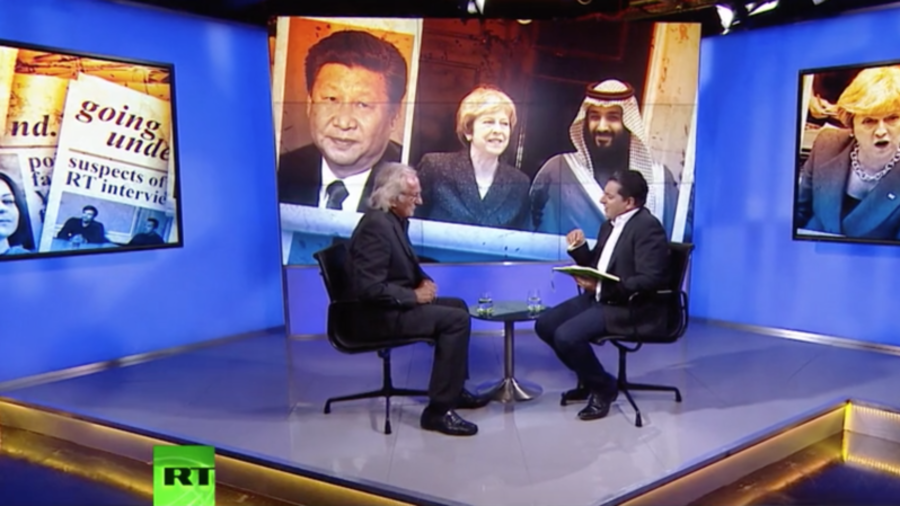‘Unrelenting vindictiveness’: Pilger talks MSM landscape & Assange, Syria & US sanctions wars

There are two types of media in the world – approved and unapproved – and the public is generally only allowed to see the former, journalist John Pilger told RT. He also spoke about Western sanctions and Trump’s approach in Syria.
Speaking to RT's Going Underground, Pilger said that he believes you can categorize the news as approved or unapproved. “Basically we're allowed to see the approved news but not allowed to see the unapproved news. Usually the unapproved version is the evidence...it's the piece in the puzzle that allows us to make sense of the news; we're denied that.”
Pilger, who is British, went on to address the media landscape in his country – particularly the Guardian, which, he says, carries on a “campaign of unrelenting vindictiveness against Julian Assange.” He said that after the Guardian exploited Assange and benefited from his work and the work of WikiLeaks, the whistleblower then "received the full force of the Guardian's displeasure."
That abuse, he said, is on a level that he can't remember seeing from a newspaper against an individual in his lifetime.
“Assange refused to be a member of the club.. he was so successful and he showed, I think, that the media is really, probably always has been, never more so than now, an appendage of established power. He shone a light on that and that was unforgivable.”
Pilger also touched on the subject of Syria, stating that he believes US President Donald Trump wants to get out of the country but feels he can't.
“My own reading is that Trump would like to get out of Syria – it's messy, it's costly for him, he doesn't really need it. There's no morality here, he just pragmatically doesn't want it. But there is Russia in Syria, quite successfully in Syria if you like, having helped stave off a major defeat of the government, so he feels he must face up to them.”
Staying on the topic of Russia, Pilger noted that, despite being heavily sanctioned by the West, Moscow continues to operate just fine.
“Russia is massively sanctioned but Russia goes on. It goes on and has formed a very close alliance with China,” he said, adding that “China is a bit sanctioned, might be more sanctioned. It doesn't really give a damn actually.”
When it comes to Iran, another country heavily sanctioned by the US, Pilger said that Washington wants to recover its power in the region, which it hasn't had since the fall of the Shah of Persia in 1979.
“The US has never really recovered...its equilibrium, its power in the Middle East. It wants Iran back – if not back, it wants to deny Iran the independence of the Iranian state,” he said, noting that the UK and the EU want to continue trading with Iran – despite being told not to by Washington – because “there are riches to be made” there.
But, while Trump attracts criticism for his tough stance on Iran and his withdrawal from the JCPOA nuclear deal, Pilger said that Hillary Clinton would likely be doing the same thing if she were president.
“Be assured that a President Hillary Clinton would probably be doing the same thing to Iran – this is the same Hillary Clinton that, when she first went campaigning in 2009, said at one rally that she was prepared to annihilate Iran.”
If you like this story, share it with a friend!
















